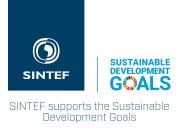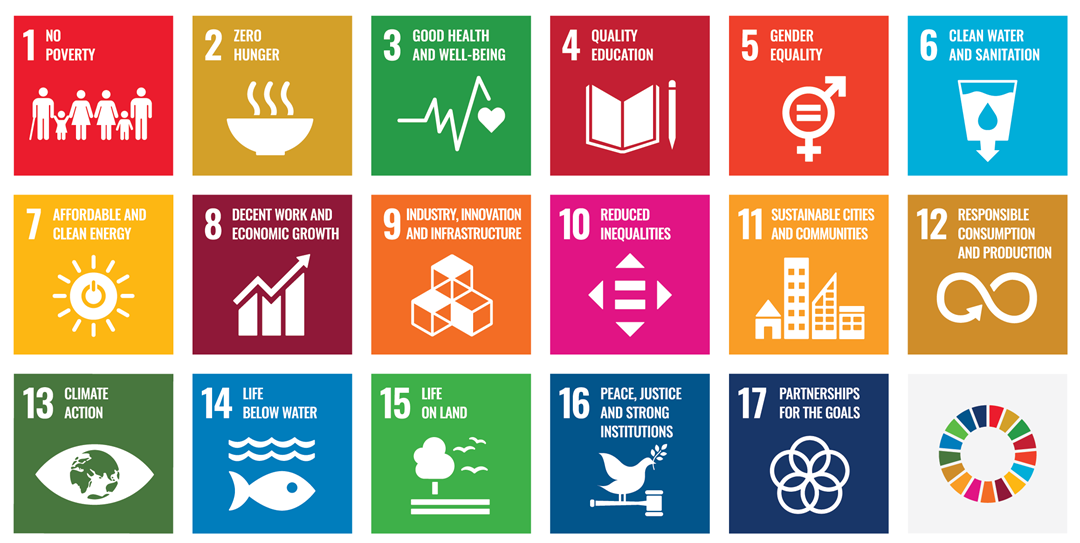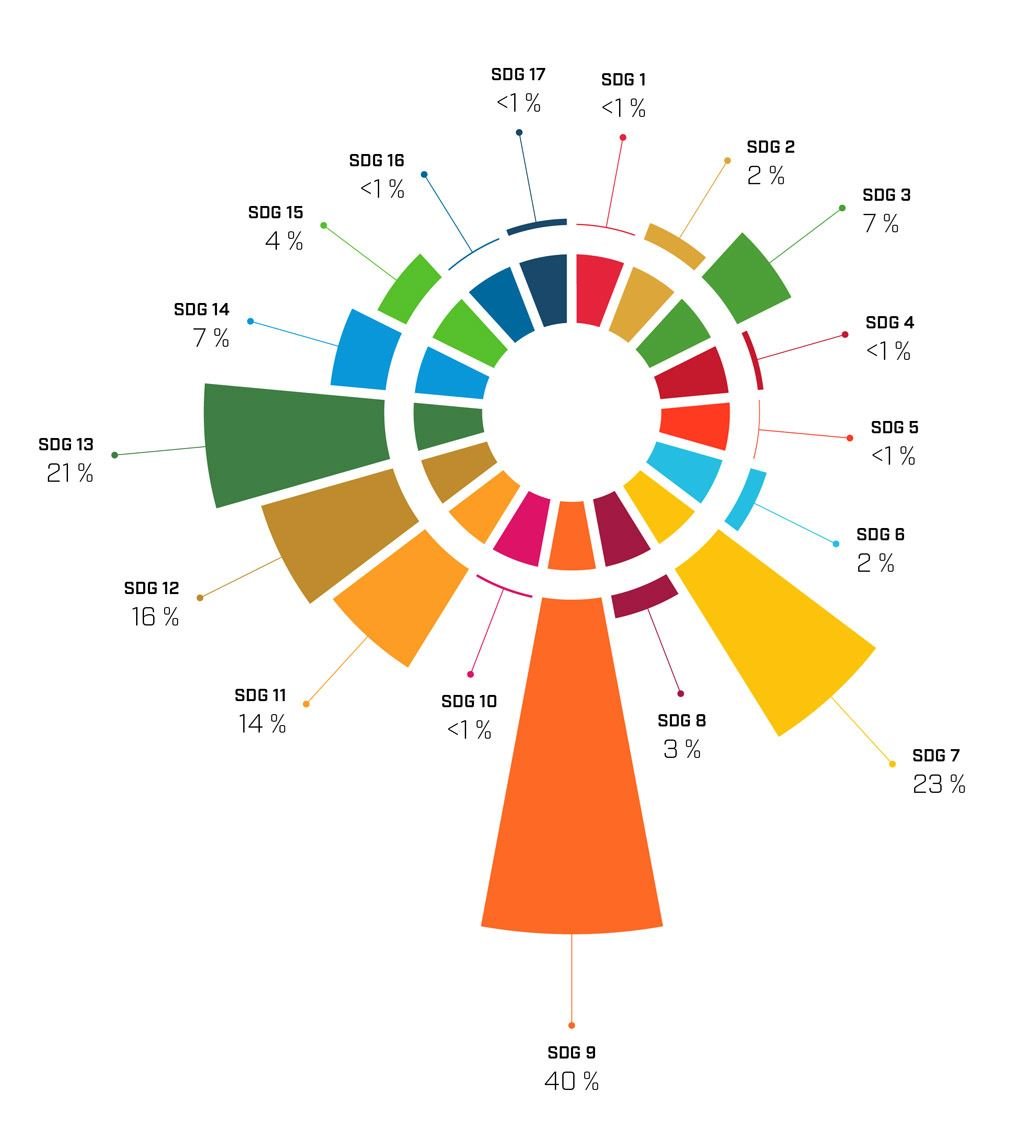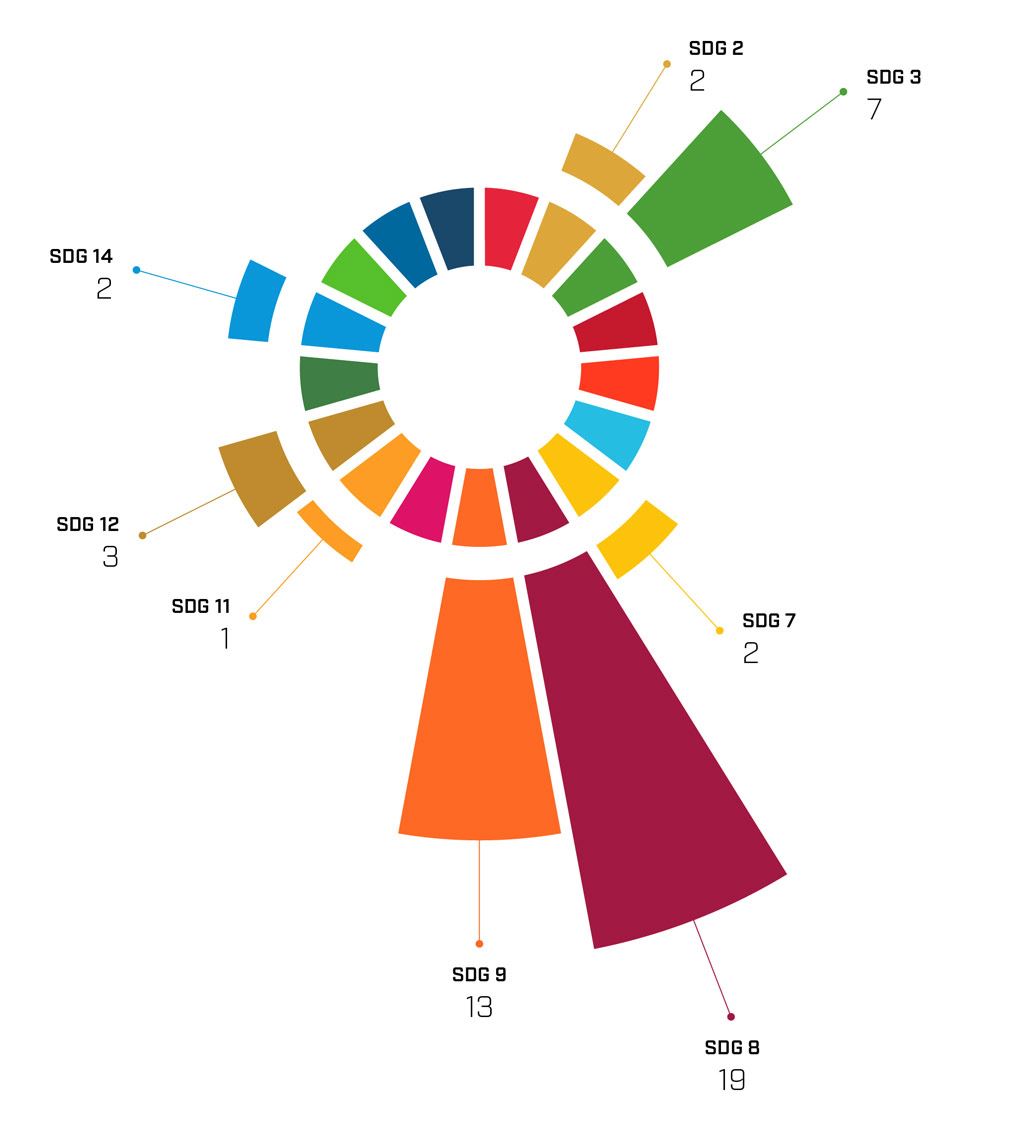
Sustainability in SINTEF

As the world around us changes, SINTEF is experiencing a great demand for our research and innovation. Our vision, "Technology for a better society" continues to be relevant to customers and partners who must respond to societal challenges.
SINTEF's strategy and activities are guided by the UN Sustainable Development Goals
SINTEF's corporate strategy, adopted in 2019, is guided by the UN Sustainable Development Goals (SDGs). The goals refine SINTEF's vision. This extends beyond the obligations we have had as a member of UN Global Compact since 2009. The 17 SDGs set out what we and the world have to achieve in creating a better society.


Our research portfolio and the Sustainable Development Goals
Many companies set clear priorities regarding which SDGs they particularly want to deliver on – often based on strategic considerations or on an assessment of where they can have the greatest societal impact.[1] As a research institute, SINTEF is involved in many value chains, industries and areas of expertise – with an emphasis on sectors where technological solutions play an important role. This breadth means that we want to deliver on the entire sustainability agenda and have in our corporate strategy committed ourselves to all 17 SDGs. At the same time, SINTEF clearly delivers substantially more on some goals than others.

An analytical approach confirms this. The figure shows our research projects’ relevance to the various SDGs, measured in terms of turnover in 2021.[2]
We are systematically working to improve methodological weaknesses but believe that the figure provides a good visualisation of SINTEF’s profile. It shows that in 2021 we carried out significant activities in relation to eight SDGs in particular, listed by the share of our turnover associated with each SDG in the project portfolio:
- Goal 9) Industry, Innovation and Infrastructure
- Goal 7) Affordable and Clean Energy
- Goal 13) Climate Action
- Goal 12) Responsible Consumption and Production
- Goal 11) Sustainable Cities and Communities
- Goal 3) Good Health and Well-being
- Goal 14) Life Below Water
- Goal 15) Life on Land
We also have activities related to the other SDGs, but some are marginal, especially in relation to goal 5) Gender Equality and goal 16) Peace, Justice and Strong Institutions. Nevertheless, it is crucial for us to work systematically with such topics through our own business – including gender balance and good governance.
[1] World Business Council for Sustainable Development, "Reporting matters 2019" (2019) p. 20. https://www.wbcsd.org/Programs/Redefining-Value/External-Disclosure/Reporting-matters/Resources/Reporting-matters-2019
[2] The model shows the share of gross turnover for research projects in SINTEF’s six institutes in 2021 that contribute to the various SDGs, with up to three SDGs tagged per project. “Other/Outside” and the untagged portfolio (representing a total of around 8 per cent of the turnover) are not included in the model.
Our start-up companies and the Sustainable Development Goals
SINTEF’s current portfolio of 19 research-based start-ups have also been evaluated in relation to the 17 SDGs. All companies have been tagged with goal 8) Decent Work and Economic Growth, and many with goal 9) Industry, Innovation and Infrastructure.
Many of these companies are involved in the application of key technologies within IT, biotechnology and nanotechnology that will enable a variety of products, services, and value chains for sustainable innovation.
In recent years, we have also seen a significant increase in start-ups targeting goal 3) Good Health and Well-being. Several companies also target goal 12) Responsible Consumption and Production, 14) Life Below Water, 7) Affordable and Clean Energy and 2) Zero Hunger.

Sustainability as part of management and organisation
As a foundation, SINTEF has no owners, but it does have a responsibility to fulfil its purpose and societal mission. No dividends can be paid out and our entire surplus is used to boost the organisation's financial strength and innovation capacity through improving expertise and investing in infrastructure and strategic priorities.
Integrating sustainability into the core of how we work is not only important for our business areas. It is also about how we manage and organise ourselves.
SINTEF must always strive to ensure that the requirements and expectations of our clients and other partners are properly met. SINTEF's management system is certified in accordance with the internationally recognised standards, ISO 9001:2015, ISO 14001:2015 and ISO 45001:2018. This means that we have a management system designed to ensure that SINTEF delivers products and services of the agreed quality, takes account of the external environment, and works systematically on its working environment and safety. SINTEF promotes human rights and decent working conditions in connection with the production of goods and services. This also applies to our subcontractors at home and abroad.
SINTEF is an attractive place to work. Diversity and a good gender balance are essential for delivering on major societal challenges.
Ethics, anti-corruption and good governance are prerequisites for our activities. Ethics constitute an integral part of SINTEF's strategy and apply to all employees.
